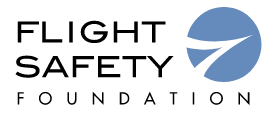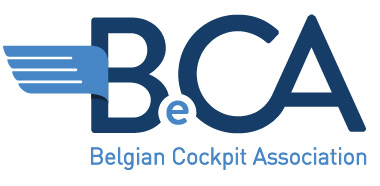Partnerships
For more than ten years, BeCA has developed a close cooperation with APPN for individual Loss Of Licence insurance whose sole purpose is to offer better coverage to our BeCA members.
BeCA represents its members at the European and International Levels through its membership to the European Cockpit Association (ECA) and the International Federation of Air Line Pilots’ Associations (IFALPA). BeCA contributes actively to the work of these two associations by providing expert input.
BeCA supports also through its membership the Flight Safety Foundation (FSF) and benefits from its expertise in aviation safety.
BeCA is an active member of the Global Cabin Air Quality Executive (GCAQE), a global coalition of health and safety advocates committed to raising awareness and finding solutions to poor air quality in aircraft.
APPN
APPN is a provident society run by and for Pilots in collaboration with strong insurers. It is a French non-profit association created in 1957 by Jean Dupont, Captain on board Air France. APPN offers and manages insurance products specifically adapted to Pilots at every stage of their careers. It was created by pilots and it is insuring about 7500 of them.
It has been offering a special discount to BeCA members since January 2011. Pilots can cumulate their company group insurance with it. They propose a temporary & permanent Loss of Licence insurance and life insurance.
ECA
T he European Cockpit Association (ECA) was created in 1991 and is the representative body of European pilots at European Union (EU) level. It represents over 38,000 European pilots from the National pilot Associations in 37 European states. In addition, ECA has 2 Associate Members from outside the European region.
Since the advent of the Single European Aviation Market, air transport is no longer a purely national domain. European policies are made in all areas of aviation that affect pilots, such as safety, flight crew licensing, air operations, fair competition, international air traffic agreements, air traffic management, aircraft maintenance, employment conditions, etc. In line with its mission statement and aviation safety being its prime concern, ECA strives to ensure safe and sustainable growth of the air transport industry across Europe, based upon clear, harmonised and enforceable rules throughout the EU.
Moreover, since 2000, ECA is a recognised Social Partner in the EU’s Sectoral Social Dialogue. This allows them to develop – jointly with European employers’ organisations – common positions, recommendations and agreements that can have legally binding effect throughout the EU.
IFALPA

The International Federation of Air Line Pilot’s Associations (IFALPA) represents over 100,000 pilots and flight engineers in almost 100 countries worldwide.
The mission of IFALPA is to be the global voice of professional pilots by providing representation, services and support in order to promote the highest level of aviation safety worldwide.
IFALPA is based in Montreal, where it closely works with the International Civil Aviation Organization (ICAO). It actively contributes to the development of international standards in civil aviation.
Flight Safety Foundation

For more than 70 years, the Flight Safety Foundation (FSF) has been the leading voice for aviation safety around the world. Since 1947, FSF has helped save lives around the world.
The Foundation is an international non-profit organization whose sole purpose is to provide impartial, independent, expert safety guidance and resources for the aviation and aerospace industry.
Today, membership includes more than 1,000 organizations and individuals in 150 countries. The Foundation is based in Alexandria, Virginia, U.S., has a regional office in Melbourne, Australia.
Flight Safety Foundation continues tackling some of the biggest safety issues facing the aviation industry.
Global Cabin Air Quality Executive
Established in 2006, the GCAQE is the leading organisation representing air crew (pilots, cabin crew and engineers) and passengers, that deals specifically with contaminated air issues and cabin air quality. The association represents over 33 organisations, and over one hundred thousand workers around the world.
The primary aim of the GCAQE is to effect the changes in the aviation industry that are necessary to prevent exposure to heated synthetic jet engine oils, hydraulic and de-icing fluids; that are known to contaminate ventilation air supplied to the cabin and flight deck. Contaminated air may result in crew impairment or less frequently, in crew incapacitation and jeopardize flight safety. Both short and long term health effects have been reported as a consequence of these exposures.
The GCAQE has developed a leading reputation on the cabin/bleed air topic that is recognised by worker organisations, government, academia, and industry. The association offers practical tools to assist their members and is committed to raising awareness and finding solutions to poor air quality on aircraft.


